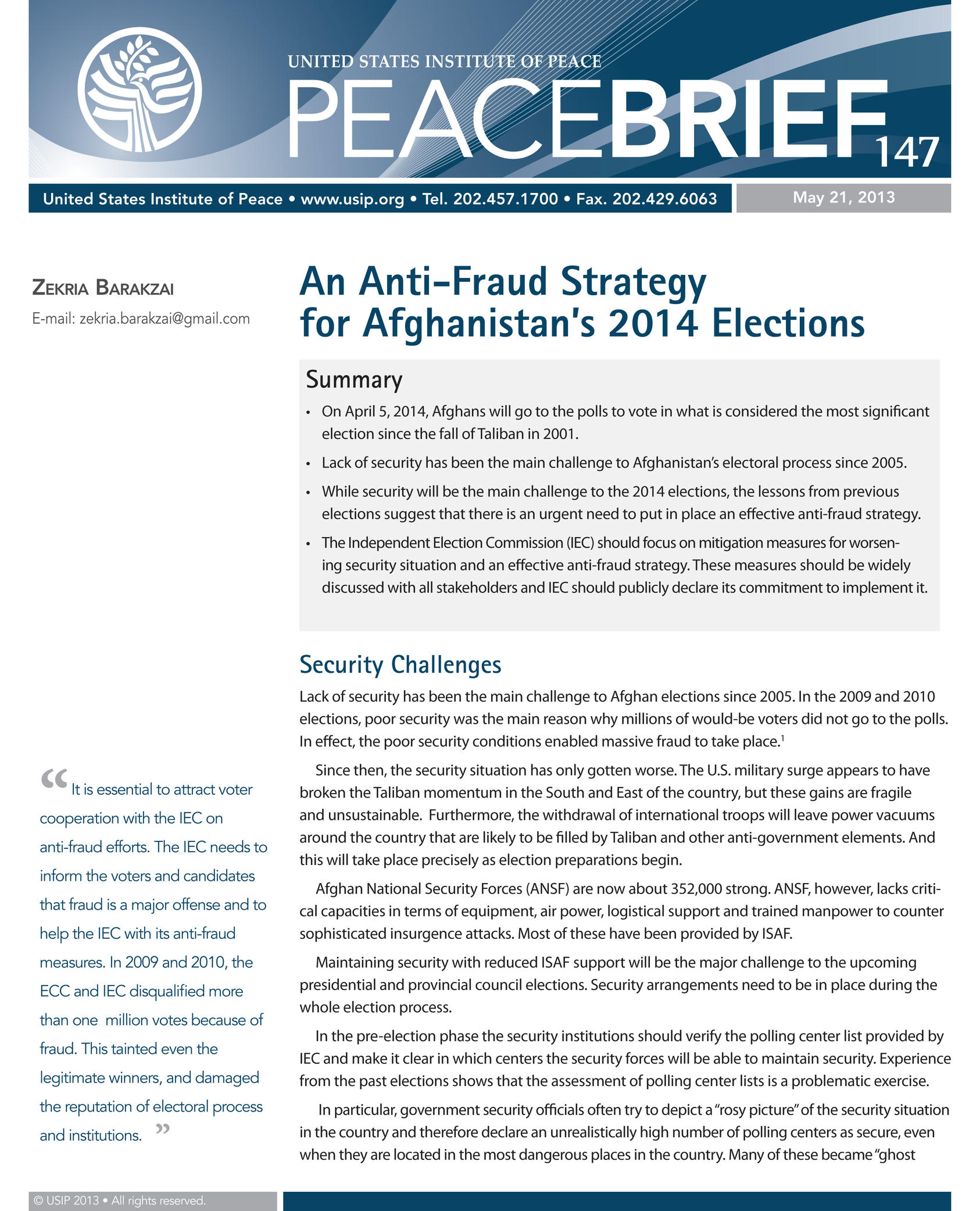In April 2014, voters in Afghanistan will go to the polls for the most important elections since the fall of the Taliban in 2001. Given that international security forces are scheduled to leave the country by the end of 2014, a legitimate election is essential for the country’s stability. Afghan electoral official Zekria Barakzai outlines steps Afghanistan can take now to prevent electoral fraud in 2014.
Summary
- On April 5, 2014, Afghans will go to the polls to vote in what is considered the most significant election since the fall of Taliban in 2001.
- Lack of security has been the main challenge to Afghanistan’s electoral process since 2005.
- While security will be the main challenge to the 2014 elections, the lessons from previous elections suggest that there is an urgent need to put in place an effective anti-fraud strategy.
- The Independent Election Commission (IEC) should focus on mitigation measures for worsening security situation and an effective anti-fraud strategy. These measures should be widely discussed with all stakeholders and IEC should publicly declare its commitment to implement it.
About This Brief
In April 2014, voters in Afghanistan will go to the polls for the most important elections since the fall of the Taliban in 2001. Given that international security forces are scheduled to leave the country by the end of 2014, a smooth political transition as result of an acceptable election is the cornerstone of stability in the country. This Peace Brief recommends an anti-fraud strategy to promote a higher voter turnout and a credible election process. The author, Zekria Barakzai, is the senior policy advisor with the High Office of Anti-Corruption of Afghanistan and chairman of the Afghanistan Association of Electoral Officials. Barakzai previously worked for the IEC as deputy chief electoral officer from 2005 through January 2013.
